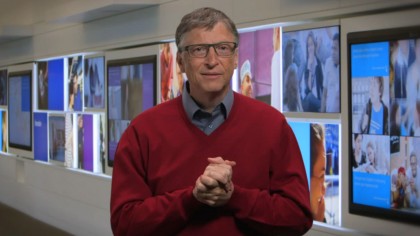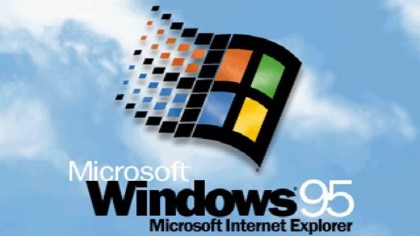Happy 60th birthday, Bill Gates: Thanks for not becoming a lawyer
The man who brought us Internet Explorer

Bill Gates' parents wanted him to be a lawyer.
What if he had followed through with his parents' plan and studied pre-law at Harvard instead of founding Microsoft. Would he be arguing cases before the Supreme Court? Would he be sitting on the Supreme Court? (Probably the latter.)
One thing is clear, no matter his profession, Bill Gates would probably be good at it. We're just lucky he chose computers instead of litigation.
Because without Bill Gates and Microsoft, we'd still be thinking of computers as those IBM machines office workers ran away from every weekday at five o'clock.

A BASIC beginning
Sixty years ago today, William Henry Gates III was born. And a mere twenty years after that, Gates and partner Paul Allen formed Microsoft (or Micro-Soft, as it was then known) in order to sell their BASIC interpreter for the MITS Altair 8800.
What the hell does that mean? It means that Gates and co. put a boot in the ass of computing and sent it careening onto the den desk. BASIC made it possible for the average hobbyist to interact with a computer. No more time-sharing at the local university or spaghetti-only diets in order to afford a personal computer. The revolution would not be televised; it would be found in your home, on your desktop, with Microsoft's Altair BASIC.
But in 1976, Microsoft's first year of operation, few in the tech industry saw it that way. In the early years of computing, hardware was king – IBM had grown into a multi-national behemoth because of the success of its time clocks and punch-card readers. Gates, however, envisioned a different paradigm, one where software would supplant hardware as the dominant driver of the computing space.
Sign up to the TechRadar Pro newsletter to get all the top news, opinion, features and guidance your business needs to succeed!
And thanks to the Microsoft-spurred rise of the home computing market, he was right.

One OS to rule them all
Over the course of the 80's and 90's the rapidly decreasing cost of the personal computer led to a rapidly increasing presence in households. The "computer in every den" had joined "the chicken in every pot, and the car in every garage" as an American aphorism.
And that was due in no small part to Bill Gates' Microsoft.
Microsoft's DOS and later Windows operating systems came to dominate this new market, thanks to their compatibility with most, if not all, non-Apple PC's. What did consumers see whenever they pressed the power button on their new Dells and Compaqs and Gateway 2000s? Gates' signature, flying, multicolor-paned Windows logo.
As consumers increasingly associated their home computing experience with Microsoft operating systems, application developers (at least those keen on maximizing profits) were forced to do the same.
In this way, Gates bent the home computing market into a Microsoft feedback loop. Average Joe and Jane used Windows because it came bundled in with their new home computer. Developers coded their "killer apps" for Windows because that's what the Average Joe and Jane had on their shiny new desktop. And Average Tim and Kim, in order to get that awesome word processing program Average Joe talked up at the last PTA meeting, had to get a computer with this "Windows thing" otherwise Tim and Kim wouldn't be able use Joe's touted word processor.
Clearly this was great for Bill Gates, but it wasn't bad for Average Joe and Jane either.
Just as BASIC made it possible for hobbyists to access a personal computer, DOS and Windows made it possible for the rest of us. Now Average Joe could easily use and (more importantly) afford a technology previously limited to businesses, tech-geeks and academics.